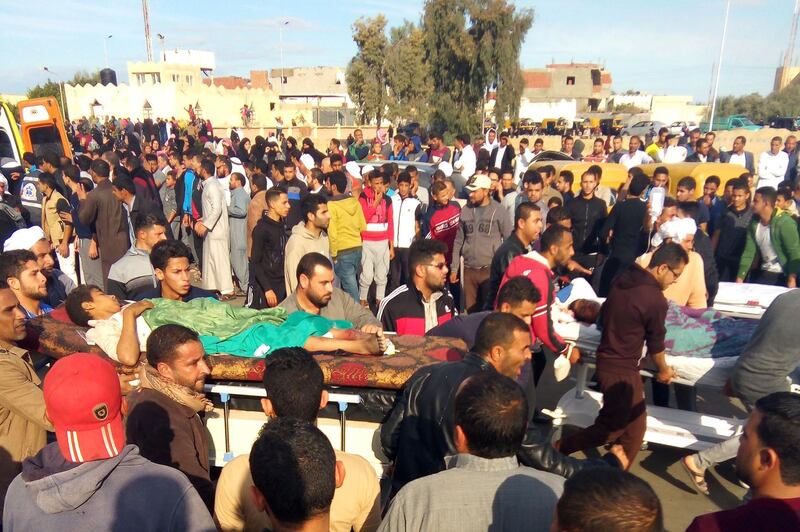The murderous attack on a packed mosque in the Sinai Peninsula marks a shift in tactics by ISIL-affiliated groups to demonstrate that their followers can still conduct mass-casualty attacks despite losing swathes of territory, according to analysts.
An ISIL affiliate was most likely to be behind the attacks, which for several years has harried officials and launched a series of small-scale but deadly attacks in the area that have previously focused on security and police targets.
Fighters have proved surprising durable, inflicting damaging losses on Egyptian security forces through roadside bombs and ambushes, but have not been able to claim a territorial stronghold as it was once able in places such as Mosul, Iraq, and Raqqa in Syria.
The direct attack on a mosque on this scale is without precedent and the toll could end up as the deadliest in Egypt’s history, said Issandr El Amrani, project director for North Africa for the International Crisis Group. “It suggests that they are now completely indiscriminate and don’t care about local sentiment,” he said.
Its failure to secure a territorial base has meant that ISIL has fallen back on the tactics of “shock and awe” with little need for policies to keep the local population on its side.
The group has previously targeted Sufis, which it considers heretics because of their less literal interpretation of the faith. ISIL beheaded a leading Sufi religious figure, the blind sheikh Suleiman Abu Heraz, last year and posted photos of the killing online. Militants have also carried out deadly bombings on churches in Cairo, killing dozens of Christians.
The latest attack also highlighted problems within the Egyptian security establishment which has been unable to crush the three-year uprising. Islamic militants stepped up their campaign of violence in northern Sinai after the military ousted the Muslim Brotherhood from power in 2013.
President Abdel Fattah El Sisi in October reshuffled his military top brass after a series of attacks left dozens of soldiers dead.
The planned improvements will take time to filter through, said Andrew Freeman the lead Egypt analyst at Control Risks. The attacks, if shown to be ISIL-linked militants, will show that they “still have the capability to conduct mass spectacular attacks”, he said.





